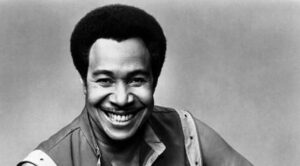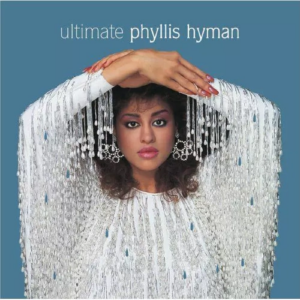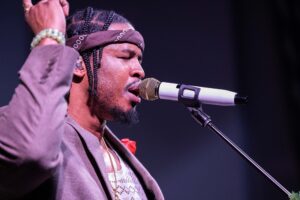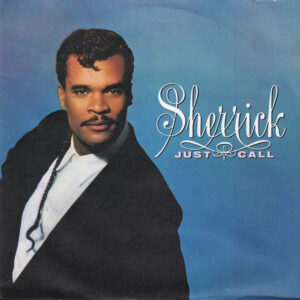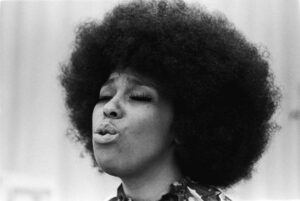 Conya Doss’ fans are eagerly awaiting the release of Still, her fourth studio album. Doss, meanwhile, remains busy. When she’s not recording and touring, she’s working as an educator in the Cleveland public schools. Doss took time out of her busy schedule to answer questions about giving listeners something new, how working with young people influences her music and why Donny Hathaway is the creative muse for so many young soul singers.
Conya Doss’ fans are eagerly awaiting the release of Still, her fourth studio album. Doss, meanwhile, remains busy. When she’s not recording and touring, she’s working as an educator in the Cleveland public schools. Doss took time out of her busy schedule to answer questions about giving listeners something new, how working with young people influences her music and why Donny Hathaway is the creative muse for so many young soul singers.
Q: How do you think that your style and sound have changed from your first album until now?
Doss: I will say that it’s ironic that you asked that because the title Still has several different meanings from my perspective. Even though there has been a lot of evolution and change surrounding my music career, I’ve tried to stick to the same formula, still. Basically creating music that I like and hopefully I’ll reach some other people who see things the way that I do from a musical perspective – and from a situational perspective, too. Different things come up and I’m thinking, ‘Okay, someone can relate to (the) story that I’m telling through my music.’
Q: The song "Something 2 Nite" seems to be one that has youth appeal. When did that hit home?
Doss: When we have free time (in class) or group activities I let (my students) listen to music. It’s not necessarily mine, but I did let them listen to the sampler and that one really caught their attention, and you’re talking about kids between 12 and 14 and when I put that one on, they liked that one.
Q: What thinking went into making the song "Something 2 Nite?" Were you hoping to make a song that could appeal to radio?
Doss: When (we) wrote the song, I didn’t think about it like that. Then, when everybody started hearing it, and they were like ‘that’s a little outside your box,’ and that’s good because I don’t want to be inside the box.
Q: Do you worry that you will alienate your fans when give them something musically that they don’t expect?
Doss: All these records are only fragments of Conya and every time I do a record I’m sharing a different side of me. They get to know me better. They get to know more of me. I’m not predictable, and I don’t want to be predictable. The people who like my music aren’t really feeling "Something 2 Nite," and to honest to you it wasn’t my favorite cut either. I thought it was a fun cut, something that I wanted (to do). I like the subject matter because I can relate to it, and I’m sure a lot of other people can relate to the subject matter.
Q: Do you have a favorite song on Still?
Doss: "What I’d Do" is probably one of my favorites, and "Message" is definitely a song that is dear to my heart. A lot of times when I get e-mails from people trying to reach out, my schedule is so hectic I don’t have a chance to reach out to people individually. So I thought I would right everything that I was feeling in that song, and hopefully get out the message that I didn’t forget about you, it’s just that things are kind of hectic. It’s a dedication song to those who have been supportive continually.
Q: You said that each record reveals a little more about yourself. What do you think fans will learn about Conya Doss when they listen to Still?
Doss: I basically am still staying true to my music. Even though they may hear things that are outside what they may consider the Conya Doss box, I’m still sticking to my formula – sticking to my creative side which may not be a stereotypical neo-soul track or whatever. They’ll get more of me by seeing that I’m showing them other kinds of music that I’ve been exposed to. Like I have a trip-hop track ("Right On Time") and I love trip-hop. That’s what I mean when I say they’re getting to know more about me.
Q: How do you think your role as an educator has influenced the music you make and how you carry yourself in public?
Doss: I don’t want present something that I would be ashamed of, or that my students can’t listen to. So I’m very conscious because when you’re put in certain positions – whether you asked to be there or not – you have to be really careful because I think kids are really influenced by music. We can see the way they dress and talk. I don’t think they even know how much they are influenced. I have conversations with my students about Okay, ‘why are you dressing like that? Where are you getting those ideas from?’ and they’re starting to see, ‘I’m getting it from TV, or I’m getting it from the music."
Q: So being an educator gives you a broader perspective on this issue?
Doss: Oh yeah, I think I have a much broader view because the kids who are buying the records, I work with that population of kids.
Q: Do ever get frustrated about the way the music industry works?
Doss: I know there is a group out there who appreciates it. The people who have been there from the (grass) roots up, those are the people you have to pay homage to, so it doesn’t bother me at all. The people who are doing the kind of music that I do are not going to go away. I’m not looking for anyone who doesn’t appreciate what I’m doing. I’m right where I need to be.
Q: Why are so many young soul singers influenced by the music of Donny Hathaway?
Doss: Well, I’ll tell you this, I can remember being around six or seven and my mother playing "The Ghetto" and I’m like ‘who is this’ and she said Donny Hathaway. I would listen to it. I would pick (the record up) – back then it was 45s – and playing it over and over. I remember the area where I was living at. I was living in East Cleveland, and listening to that song and I could relate to what he was talking about in the song, and it hit close to home. That kind of music is timeless when it speaks to the soul. That’s why it’s called soul music.
by Howard Dukes

